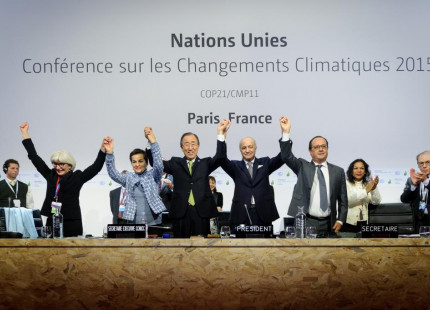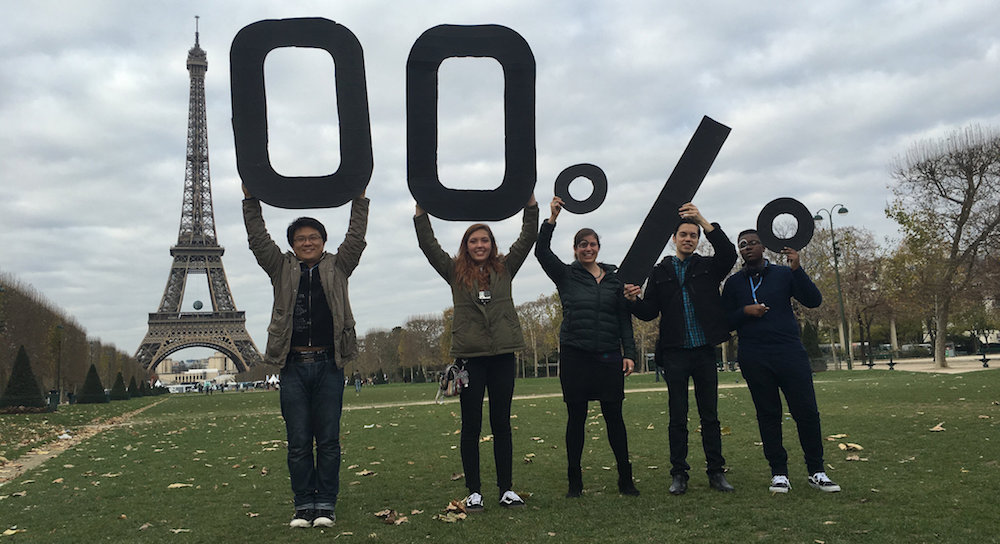US Pulls Out of Paris Climate Agreement – What Does It Mean?
Rebecca Anderson
|June 5, 2017

On Thursday, the U.S. became one of three countries to reject the Paris Climate Agreement. The other two are Syria, a failed state whose collapse was partly fueled by climate change, and Nicaragua, who refused to sign in protest that the agreement isn’t strong enough.
194 other countries – the entire rest of the world – are lined up against us.
So, where do we go from here?
Granted, it will actually take the U.S. almost three and a half years to officially withdraw from the agreement, by which time, it will be exactly one day after the next presidential election in 2020. At that point, a new incoming administration could change the game. But there’s plenty of climate damage we can do during that time by refusing to meet our commitments.
Will the U.S. be left behind, relinquishing not only our seat at the table, but also our role as a global leader?
The U.S. under President Obama had committed to reducing our carbon emissions 26-28% below 2005 levels by 2025. Much of that will be gone – especially without the Clean Power Plan, the foundation of the U.S. plan to achieve emissions reductions – which President Trump already announced would be eliminated.
However, at the same time, solar and wind power are on the rise, and coal is being phased out, replaced by both cheap natural gas and renewables. This trend has already begun and will likely continue, with or without the U.S.’s participation in Paris. Kate Larsen of the Rhodium group estimates that the U.S. is on a path to reduce emissions 15-17% below 2005 levels by in 2020, regardless.

Which is good, but not nearly as good as we need it to be. The climate system doesn’t care where the CO2 comes from – all it cares about is how much is in the atmosphere and how long it’s been up there. The U.S. is responsible for more CO2 in the atmosphere than any other nation. We bear a huge responsibility for the impacts of climate change already being felt, as well as for those yet to come. Tragically, these impacts hit the very people – both here at home and around the world – who have done the least to cause climate change. The inequity of this is not lost on other nations of the world.
As the U.N. Secretary-General António Guterres says, “The sustainability train has left the station…”
Even with the U.S. on track to produce less CO2, the implications of a U.S. pullout on future temperatures are concerning – an estimated roughly 0.3ºC (0.5ºF) of additional warming by the end of the century. This could make the difference between staying below 2ºC warming, the globally-agreed on limit for avoiding dangerous climate change, or not. (We’ve already warmed about 1.1ºC of this, so there’s only about 0.9ºC left to play with.)
This calculation also applies to the U.S. alone. Of huge uncertainty is how other countries will respond to the U.S. reneging on our climate responsibilities. Will they follow suit and flee the agreement as well? No country wants to be left holding the check, which is why having all countries at the table and signed onto the Paris Agreement was such an enormous undertaking, twenty years in the making.
If other countries do refuse to honor their commitments as well, scientists estimate that that may put the 2ºC target firmly out of reach. (One short paper in the journal Nature on this is worth a read.) But the other option is that countries rally together in defiance of the U.S.’s stance. The European Union and China have already reaffirmed their commitment to the Paris Agreement, with many other countries expected to follow.
As the U.N. Secretary-General António Guterres says, “The sustainability train has left the station. Those who embrace green technologies will set the gold standard for economic leadership in the 21st century.”
Will the U.S. be left behind, relinquishing not only our seat at the table, but also our role as a global leader? For now, at least, the answer appears to be yes.
Join our Youth Action Network
More Blog Posts
Driving India towards self sufficiency and freedom from oil
India can shield itself from oil-price shocks and global pressure over Russian barrels by leaning harder into two strengths it …
Read More
Unnatural, Not Unprecedented
For two weeks, residents of Southern California endured a waking nightmare. Parents raced against time – hurrying down the driveway …
Read MoreCrafting a Vision for the Future: My Experience at LCOY USA 2024
Dry and sunny Tempe, Arizona where temperatures have been over 100 F for 113 consecutive days, delegates gathered to attend …
Read More
